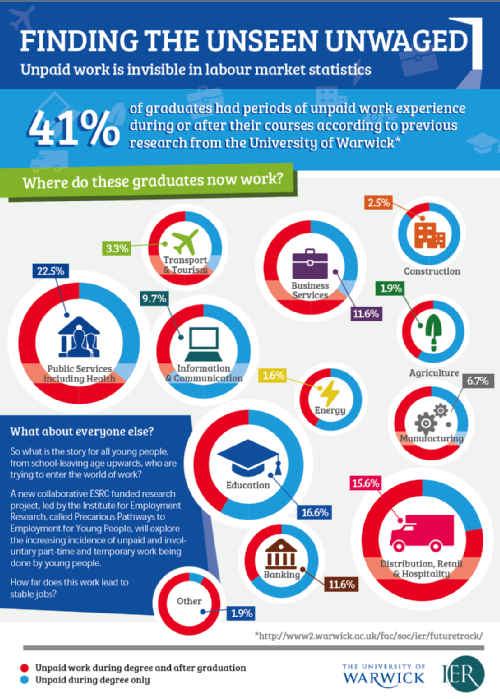IER News & blogs
IER Business Class Evaluation report published
On 26 November, Business in the Community published its report Destiny should not be determined by demography which considers the impact of school-business partnerships on young people’s employability, as well as the effects of such partnerships on schools and businesses. The report is based on research carried out by Terence Hogarth and Lynn Gambin at the Institute for Employment Research which aimed to assess the impact of employer-engagement activities, the uplift of employability skills and added-value impact on pupils of the Business Class programme. This research was carried out over the past two years in conjunction with Education and Employers Research.
The full evaluation report can be downloaded from http://www.bitc.org.uk/programmes/business-class/business-class-evaluation.
Reports from Talent Match National Evaluation
Researchers at IER are involved with colleagues at the Centre for Regional Economic and Social Research (CRESR) in the medium-term National Evaluation of the Talent Match Initiative. Talent Match is funded by the Big Lottery and is concerned with investing resources in a number of local areas in England where youth unemployment is a significant issue. The aims of the evaluation are to track the success of the initiative and projects within it - to identify what works well, for whom and in what circumstances; and to share learning and improve practice.
Duncan Adam, Gaby Atfield and Anne Green contributed to the first year Annual Report (click here for a Summary). Gaby Atfield contributed to a special report on the Involvement of Young People in the design and implementation of Talent Match, while Anne Green co-authored a theme report on Partnership Working.
IER July Newsletter now available
The latest news, publications and events from the Institute for Employment Research at the University of Warwick can be viewed in our monthly e-newsletter - July issue now available here.
Unpaid work could soon be the norm for all young jobseekers
Employment researchers predict unpaid work could soon become the norm for all young people trying to enter the job market.
A team of researchers from the universities of Warwick, Leicester, Aston and the Open University are about to start a large-scale project to look at the often ‘unstable and fragmented’ experiences of young people as they begin their careers.
Previous studies from IER revealed that 41% of graduates had taken on unpaid work experience during their course and after graduation. The public sector was shown to have the highest number of students and graduates who had done unpaid work (see Futuretrack).

The new project, called Precarious Pathways to Employment for Young People, will examine the experiences of all young people, not just graduates, from school leaving age upwards. The project is sponsored by the Economic and Social Research Council.
Project leader Professor Kate Purcell, from the University of Warwick’s Institute for Employment Research, said: “For increasing numbers of young people in the UK, the pathways into employment to work are unstable and fragmented. As employers demand evidence of 'employability skills', work placements and internships have become an integral part of secondary and higher education, and of early labour market experience. Unpaid, temporary and part-time work may soon become the norm for all young people as they start on their chosen career paths. Much of this activity is unrecorded in employment statistics. The increased early labour market experience of (often involuntary) temporary or part-time work that provides experience of employment but does not provide a living wage for young job-seekers, adds to the precarious picture of current youth access to opportunity.”
To find out more go to the Precarious Pathways project page.
Measuring additionality in apprenticeships - new report by Cambridge Econometrics and IER
A new report by Cambridge Econometrics and Terence Hogarth and Lynn Gambin at the Warwick Institute for Employment Research has been published. The report, commissioned and published by the Department for Business, Innovation and Skills (BIS) considers how the value added by government investment in Apprenticeships should be measured. The report explores how existing datasets can be used to improve understanding of additionality in apprenticeships and especially considers surveys which have become available since earlier research on this issue. Recommendations about further (cost-effective) data collection and analysis are also set out.
The full report can be downloaded from: https://www.gov.uk/government/publications/measuring-additionality-in-apprenticeships
